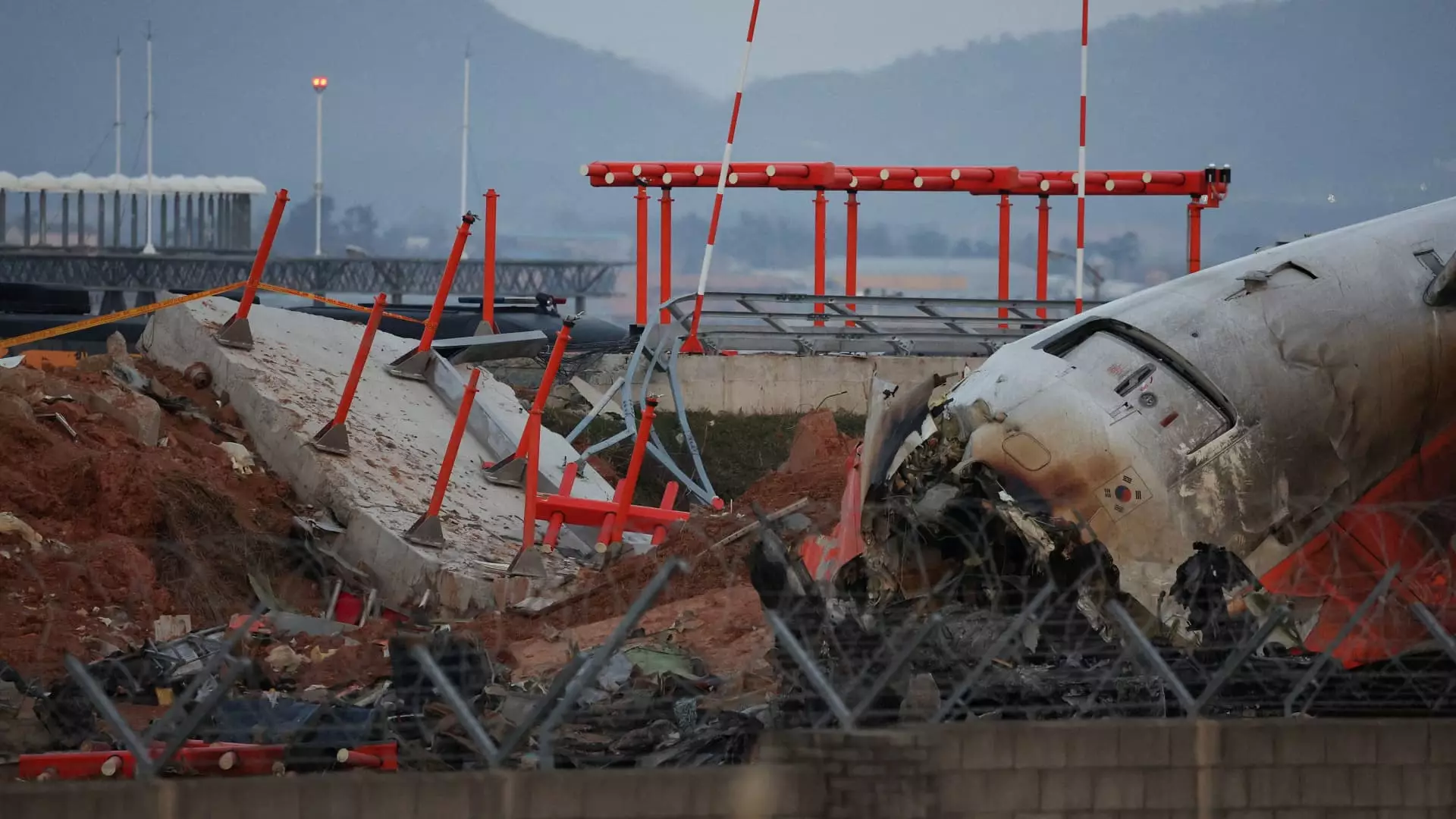In a shocking turn of events, the investigation into South Korea’s deadliest aviation disaster reveals that the black boxes of the ill-fated Boeing 737-800 ceased recording approximately four minutes before the catastrophic incident. This alarming detail was disclosed by the South Korean transport ministry, lifting the veil on a series of critical questions surrounding the crash, which tragically claimed 179 lives on December 29. The flight, operated by Jeju Air, was en route from Bangkok to Muan when disaster struck following a reported bird strike.
The importance of the black boxes—the flight data and cockpit voice recorders—cannot be overstated. These devices are fundamental in piecing together the events leading up to an accident. However, the unsettling revelation that the devices stopped functioning just minutes prior to the crash hampers the investigation’s progress. Authorities are left grappling with how and why such an essential piece of data would be missing, raising concerns about possible power failures, including that of backup systems, which is an unusual occurrence in aviation.
The flight in question, Jeju Air 7C2216, encountered significant challenges shortly before landing. Air traffic control highlighted “bird activity” in the vicinity, a fact that two minutes later culminated in the pilots declaring a Mayday emergency shortly before the plane belly-landed and overshot the runway. Subsequently, the aircraft collided with an embankment and erupted into flames, leading to a harrowing situation where only two crew members in the tail section survived. This makeshift escape from a hellish scene showcases the unpredictability of aviation emergencies.
The South Korean ministry is set to probe various angles, including deeper investigations into the structural design of the embankment. The embankment was intended to support a localizer system that assists aircraft in landing; however, its proximity to the runway and the rigid material used in its construction have come under scrutiny. Critics argue that these design elements may have contributed to the severity of the crash.
As the investigation progresses, there are growing calls from victims’ families for greater transparency and independent oversight in the inquiry process. Many relatives have expressed their dissatisfaction, urging that an impartial team of experts be involved rather than solely relying on the transport ministry. Their concerns raise a critical point about public trust in government-run investigations, especially in light of the emotional turmoil experienced by families affected by this disaster.
Sim Jai-dong, a seasoned former transport ministry accident investigator, has voiced concerns about the implications of the missing black box data and what it may indicate. His comments highlight the need for a thorough and meticulous examination of all available data and circumstances leading up to the crash.
Ultimately, the investigation into the tragic crash of Jeju Air 7C2216 not only holds significant implications for those directly impacted but also for the broader landscape of aviation safety in South Korea and beyond. This incident underscores the necessity for rigorous safety protocols and the ongoing need for advancements in aircraft technology to prevent similar disasters in the future. As the investigation unfolds, it will be imperative to keep a focus on both accountability and improvements that ensure the safety of air travel for everyone.

